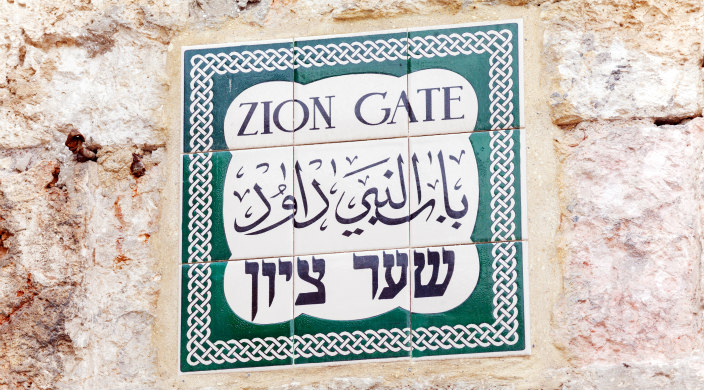
…And the Eternal One said, “Look – these are all one people with one language, and this is just the beginning of their doings; now no scheme of theirs will be beyond their reach! Let us go down there and confuse their speech, so that no one understands what the other is saying.”
Genesis 11:6-7
Recently I took the train down to Tel Aviv to attend a conference on the place of the Arabic language in Israeli culture and society. The topics of the lectures sounded interesting, addressing a number of questions that I had been thinking about for years, living here in the Galilee where 50% of the population are Palestinian Arabs.
I did not read the fine print, and discovered when I arrived that this was the first academic conference in an Israeli university conducted entirely in Arabic. Not to worry – there was simultaneous translation. And so, regardless of the content, the event itself was of historical significance, and was an emotional moment for many of the organizers and participants.
The keynote speaker and about half of the lecturers were Jews who had learned Arabic in school or later in life, some out of curiosity, some out of ideology; and some out of a desire to connect with their own roots. Having tried on several occasions to learn Arabic in informal courses at community centers, or even with a private teacher, I was humbled by the success of these speakers in mastering the language on such a high level, while I remain a repeat beginner. The experience renewed my resolve to try again. Stay tuned…
The Jews returned to their homeland beginning in the late 19th century, with a dream of renewing their ancient culture, and creating a modern national state embodying that culture. Hence, the project of renewing and modernizing the Hebrew language was a key and highly symbolic Zionist objective, and is seen by many people as an almost miraculous success story. It was important to the builders of the state to create a national Hebrew culture, and to wean the Jews from their exilic languages.
But what of the language of the indigenous residents of the region who would remain within the state? And what of the rootedness of the state in the region? From the beginning, the Zionist settlers here were ambivalent and uncertain about the proper status of these natives and their culture. When the state was founded it became clear that some sort of cultural autonomy would be necessary, for both moral and practical reasons. Thus, despite some lapses due to insensitivity or nationalism, those who wish to maintain their Arabic language and culture here have been supported through a separate public school system, television and radio broadcasts, and state-funded cultural programming, in Arabic. Also street signs, government forms, etc. Still, while Arabic may be a second official language, it is clear that you can’t really “make it” in this country unless you have a mastery of Hebrew.
One theme that recurred at the conference was the critique of this reality – the “second class” status of Arabic in the culture. If only, a number of speakers said, there were a wider knowledge of Arabic among the Jewish population, mutual distrust and fear would be reduced, and a shared culture and fair society would be fostered. On the other hand, it was pointed out, such an imbalance is natural in a majority-minority setting; and in fact, from a life-skills, economic point of view, Israeli Jews really don’t see that they have any interest in investing effort in learning Arabic (unless they want to serve in an elite unit of Army intelligence). It seems to me both sides are right. But the dilemma is a constant presence where I live.
Another theme, much-discussed at the conference, was the complicated relationship between the two languages for the half of the Jewish population of Israel who are the children of immigrants from Arabic-speaking countries. Like Jews everywhere, the Jews of North Africa and the Middle East suffered from discrimination and persecution – and yet, like Jews everywhere, they succeeded, despite these obstacles, in building, over centuries, a rich culture that was deeply entangled in the culture around them. When they immigrated to Israel, suddenly that rich culture was the culture of the enemy, and their language was a source not of pride but of embarrassment. There are many sad stories of the love-hate relationship between immigrants from Arabic-speaking lands and their cultural heritage. This ambivalence certainly plays a role (though just what role is unclear) in the dilemma discussed above, regarding the overall place of Arabic in Israeli culture.
It is hard to predict where this is all going; I wonder what our culture will sound like in another generation…




